
George Inness Painting Reproductions 2 of 9
1825-1894
American Romanticism Painter
195 George Inness Paintings
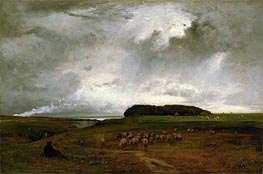
The Storm 1876
Oil Painting
$710
$710
Canvas Print
$61.95
$61.95
SKU: ING-2704
George Inness
Original Size: 64.5 x 97.2 cm
Art Institute of Chicago, Illinois, USA
George Inness
Original Size: 64.5 x 97.2 cm
Art Institute of Chicago, Illinois, USA
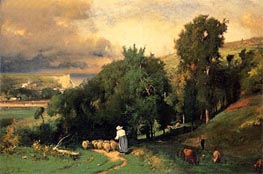
Hillside at Etretat 1876
Oil Painting
$668
$668
Canvas Print
$84.37
$84.37
SKU: ING-2705
George Inness
Original Size: unknown
Corcoran Gallery of Art, Washington, USA
George Inness
Original Size: unknown
Corcoran Gallery of Art, Washington, USA
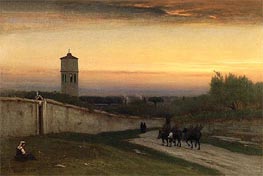
Twilight 1875
Oil Painting
$469
$469
SKU: ING-2706
George Inness
Original Size: unknown
Private Collection
George Inness
Original Size: unknown
Private Collection
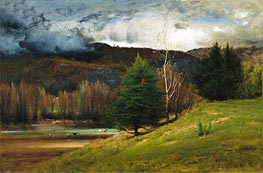
Kearsarge Village 1875
Oil Painting
$469
$469
SKU: ING-2707
George Inness
Original Size: 40.9 x 60.9 cm
Boston Museum of Fine Arts, Massachusetts, USA
George Inness
Original Size: 40.9 x 60.9 cm
Boston Museum of Fine Arts, Massachusetts, USA
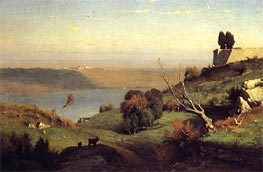
Castel Gandolfo 1876
Oil Painting
$654
$654
Canvas Print
$61.76
$61.76
SKU: ING-2708
George Inness
Original Size: 51 x 76.3 cm
Portland Institute for Contemporary Art, Oregon, USA
George Inness
Original Size: 51 x 76.3 cm
Portland Institute for Contemporary Art, Oregon, USA
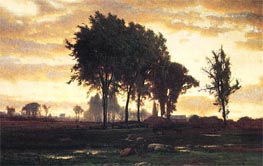
Landscape - Sunset 1870
Oil Painting
$421
$421
SKU: ING-2709
George Inness
Original Size: unknown
Private Collection
George Inness
Original Size: unknown
Private Collection
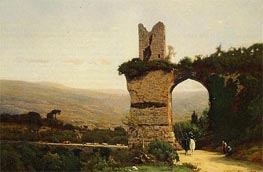
Commencement of the Galleria (Rome, the Appian Way 1870
Oil Painting
$721
$721
SKU: ING-2710
George Inness
Original Size: unknown
Private Collection
George Inness
Original Size: unknown
Private Collection
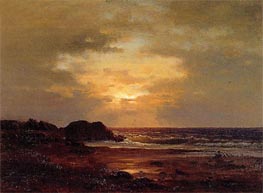
Coast Scene c.1857
Oil Painting
$376
$376
SKU: ING-2711
George Inness
Original Size: unknown
Private Collection
George Inness
Original Size: unknown
Private Collection
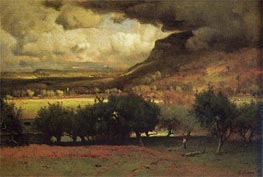
The Coming Storm 1872
Oil Painting
$469
$469
SKU: ING-2712
George Inness
Original Size: unknown
Munson Williams Proctor Art Institute, Utica, USA
George Inness
Original Size: unknown
Munson Williams Proctor Art Institute, Utica, USA
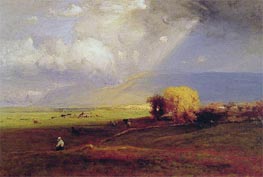
Passing Clouds 1876
Oil Painting
$607
$607
SKU: ING-2713
George Inness
Original Size: unknown
Private Collection
George Inness
Original Size: unknown
Private Collection
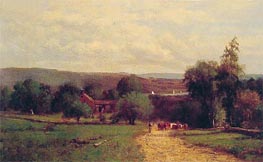
Spring 1860
Oil Painting
$376
$376
SKU: ING-2714
George Inness
Original Size: unknown
Private Collection
George Inness
Original Size: unknown
Private Collection
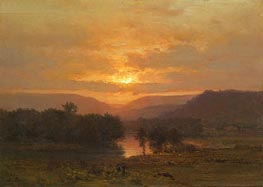
Sunset c.1860/65
Oil Painting
$318
$318
SKU: ING-2715
George Inness
Original Size: unknown
Private Collection
George Inness
Original Size: unknown
Private Collection
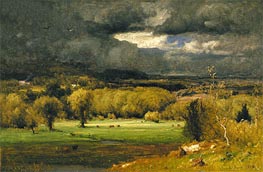
The Coming Storm 1878
Oil Painting
$629
$629
Canvas Print
$61.76
$61.76
SKU: ING-2716
George Inness
Original Size: 66 x 97.8 cm
Albright-Knox Art Gallery, Buffalo, USA
George Inness
Original Size: 66 x 97.8 cm
Albright-Knox Art Gallery, Buffalo, USA
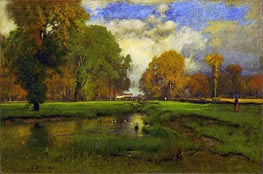
October 1886
Oil Painting
$620
$620
Canvas Print
$61.76
$61.76
SKU: ING-2717
George Inness
Original Size: 50.7 x 75.9 cm
Los Angeles County Museum of Art, California, USA
George Inness
Original Size: 50.7 x 75.9 cm
Los Angeles County Museum of Art, California, USA
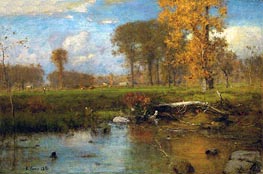
Spirit of Autumn 1891
Oil Painting
$620
$620
Canvas Print
$62.13
$62.13
SKU: ING-2718
George Inness
Original Size: 76.2 x 114.3 cm
Colby College Museum of Art, Maine, USA
George Inness
Original Size: 76.2 x 114.3 cm
Colby College Museum of Art, Maine, USA
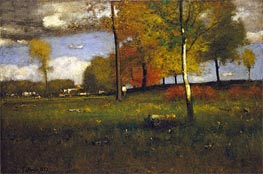
Near the Village, October 1892
Oil Painting
$620
$620
Canvas Print
$61.76
$61.76
SKU: ING-2719
George Inness
Original Size: 76.2 x 114.3 cm
Cincinnati Art Museum, Ohio, USA
George Inness
Original Size: 76.2 x 114.3 cm
Cincinnati Art Museum, Ohio, USA
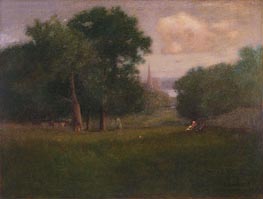
St. Andrews, New Brunswick 1893
Oil Painting
$583
$583
Canvas Print
$117.77
$117.77
SKU: ING-2720
George Inness
Original Size: 82.6 x 108 cm
Fine Arts Museums of San Francisco, California, USA
George Inness
Original Size: 82.6 x 108 cm
Fine Arts Museums of San Francisco, California, USA
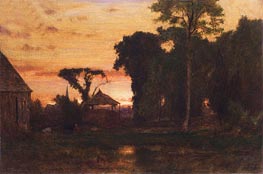
Evening at Medfield, Massachusetts 1869
Oil Painting
$369
$369
Canvas Print
$61.76
$61.76
SKU: ING-2721
George Inness
Original Size: 29.8 x 44.5 cm
Fine Arts Museums of San Francisco, California, USA
George Inness
Original Size: 29.8 x 44.5 cm
Fine Arts Museums of San Francisco, California, USA
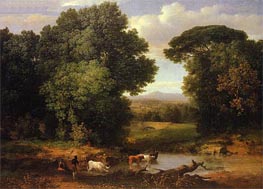
A Bit of Roman Aqueduct c.1852
Oil Painting
$668
$668
Canvas Print
$68.08
$68.08
SKU: ING-3838
George Inness
Original Size: 99 x 135 cm
High Museum of Art, Atlanta, USA
George Inness
Original Size: 99 x 135 cm
High Museum of Art, Atlanta, USA
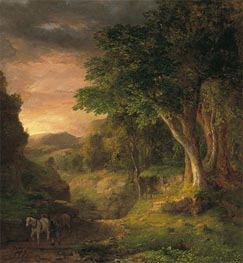
In the Berkshires c.1848/50
Oil Painting
$935
$935
Canvas Print
$86.46
$86.46
SKU: ING-5716
George Inness
Original Size: 61 x 56 cm
Thyssen-Bornemisza Museum, Madrid, Spain
George Inness
Original Size: 61 x 56 cm
Thyssen-Bornemisza Museum, Madrid, Spain
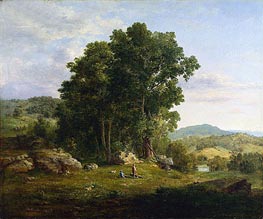
The Wood Chopper 1849
Oil Painting
$714
$714
Canvas Print
$77.45
$77.45
SKU: ING-6868
George Inness
Original Size: 50.5 x 60.6 cm
Cleveland Museum of Art, Ohio, USA
George Inness
Original Size: 50.5 x 60.6 cm
Cleveland Museum of Art, Ohio, USA
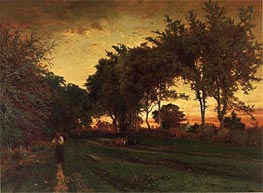
Evening Landscape c.1862/63
Oil Painting
$642
$642
SKU: ING-8414
George Inness
Original Size: 120.6 x 166.3 cm
Washington State University Museum of Art, Pullman, USA
George Inness
Original Size: 120.6 x 166.3 cm
Washington State University Museum of Art, Pullman, USA
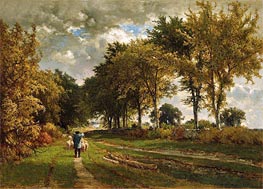
The Road to the Farm 1862
Oil Painting
$898
$898
SKU: ING-8423
George Inness
Original Size: 66 x 91.4 cm
Boston Museum of Fine Arts, Massachusetts, USA
George Inness
Original Size: 66 x 91.4 cm
Boston Museum of Fine Arts, Massachusetts, USA
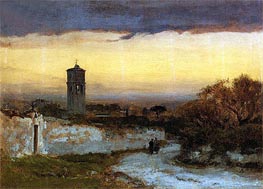
Monastery at Albano c.1875
Oil Painting
$423
$423
SKU: ING-8700
George Inness
Original Size: 25.4 x 33.6 cm
Private Collection
George Inness
Original Size: 25.4 x 33.6 cm
Private Collection